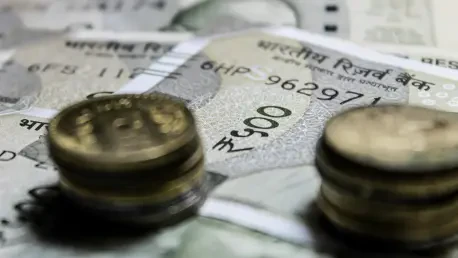Starting July 1, major Indian private banks are set to introduce significant changes to their fee structures, impacting various services, including credit cards and banking transactions. HDFC Bank and ICICI Bank have issued notifications to inform customers about the augmented charges that will affect online gaming, digital wallets, utility payments, and more. With the following detailed information and analysis, consumers can better understand how these changes may influence their financial decisions and expenditures.
Fee Adjustments by HDFC Bank
Impact on Entertainment and Transactions
HDFC Bank redefines its fee structure with notable revisions, especially impacting online gaming transactions linked to credit cards. A 1 percent charge will apply to monthly gaming expenses exceeding Rs 10,000, capped at Rs 4,999, with no reward points awarded for such transactions. However, it’s important to note that this fee is aimed specifically at online gaming, reflecting a unique target within leisure spending categories. These changes could lead consumers to reconsider how they engage with online gaming platforms, given the additional cost involved.
Similarly, transactions involving third-party digital wallets will face identical regulations and fees. When monthly transactions exceed Rs 10,000, consumers will incur a 1 percent fee, also limited to a Rs 4,999 monthly maximum. The bank’s approach to controlling fees in digital wallet transactions signals a growing trend in monitoring transactional volumes within digital financial ecosystems. This is crucial for consumers navigating the crowded field of digital wallet services where transaction fees can add an additional layer to financial planning.
Utility Payments and Essentials
For utility payments that go beyond Rs 50,000 in a single month, a 1 percent fee will be applied, with a cap set at Rs 4,999. Insurance payments remain unaffected by these changes, offering a small relief for consumers managing substantial monthly utility expenses. Interestingly, HDFC Bank also maintains specific caps on transaction fees involving rent, fuel, and education expenditures, suggesting these sectors are areas where financial behavior remains crucial for many consumers.
Fuel payments above Rs 15,000 will continue incurring a 1 percent fee, while education-related payments made directly to institutions face no additional charges. This signifies a strategic focus on maintaining affordability in vital categories like education while leveraging fuel and rent payments as substantial fee revenue sources. The continuation of such charges underscores HDFC’s intent to balance service affordability in essential areas with its fee-based revenue strategy.
Fee Modifications by ICICI Bank
Transaction and Service Charges
ICICI Bank is equally adjusting its service charges with significant implications. Transactional costs for cash and check deposits, along with demand drafts, will now include a charge of Rs 2 per Rs 1,000, with minimum and maximum thresholds set at Rs 50 and Rs 15,000 respectively. Such measures represent a strategic recalibration of service fees that aim to streamline banking operations amidst growing transaction volumes and costs.
ATM usage fees will also see a rise post the initial free transactions at non-ICICI ATMs. Financial transactions will carry a charge of Rs 23, while Rs 8.5 will be levied for non-financial transactions, reflecting a clear shift towards maximizing fee-based revenue from widespread ATM usage. The increase in fees mirrors trends observed in global banking sectors where ATM transaction costs are progressively rising as banks seek new revenue streams in the era of digital banking expansion.
Debit Card and Monthly Fees
The annual debit card fee for ICICI has surged from Rs 200 to Rs 300, marking a definite uptick in costs associated with maintaining account services. This increment is poignant as debit cards represent a fundamental aspect of everyday consumer banking interactions. Banks are evidently navigating a landscape where inflationary pressures and increased operational costs necessitate revisions in basic service charges to ensure operational sustainability.
Collectively, these changes by HDFC and ICICI are indicative of a broader trend where premium banking services are increasingly leveraged to offset administrative costs and maximize fee-based revenues. These strategic adjustments emphasize the significance of consumers reviewing and adapting their financial strategies accordingly, fostering a necessity to scrutinize monthly banking behaviors while optimizing service usage under evolving fee circumstances.
Navigating New Banking Fees
From July 1 onward, prominent Indian private banks are slated to implement substantial revisions to their fee schemes, which will impact various banking services, particularly those related to credit cards and transactional processes. Leading banks such as HDFC and ICICI have disseminated formal notices aimed at educating their clientele about the heightened fees that will come into effect. These changes will significantly affect transactions involving online gaming accounts, digital wallets, utility bill payments, and additional banking activities. With the introduction of these adjustments, it is essential for consumers to scrutinize and understand the potential ramifications on their financial planning and spending habits. A detailed exploration and analysis of these changes can aid in evaluating how these new fees might alter a consumer’s budget and financial strategy, prompting them to reassess their spending behavior and adopt a more informed approach in handling these evolving banking expenses.









